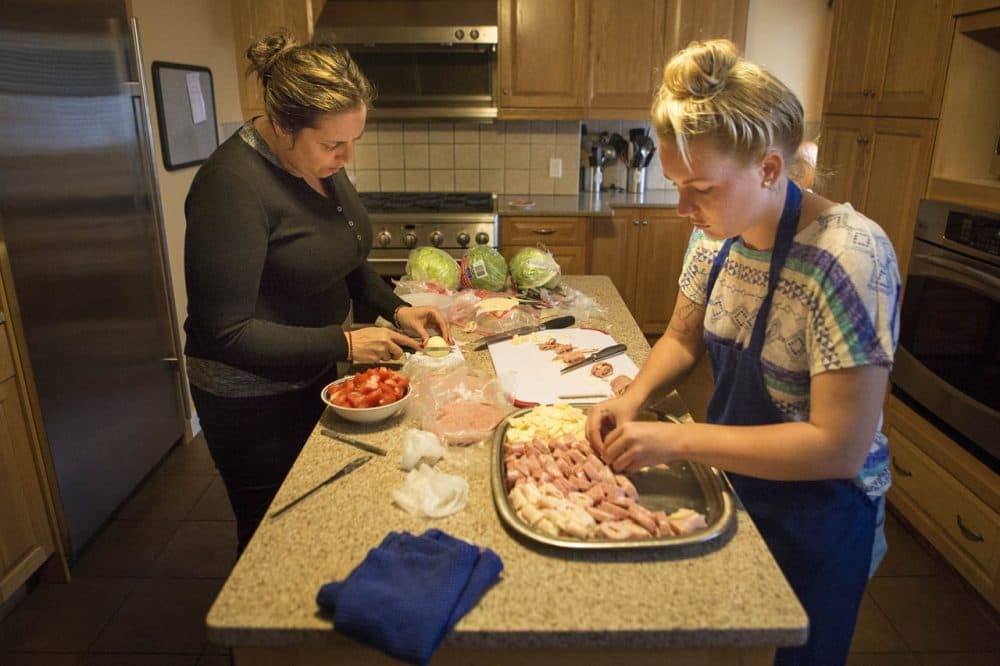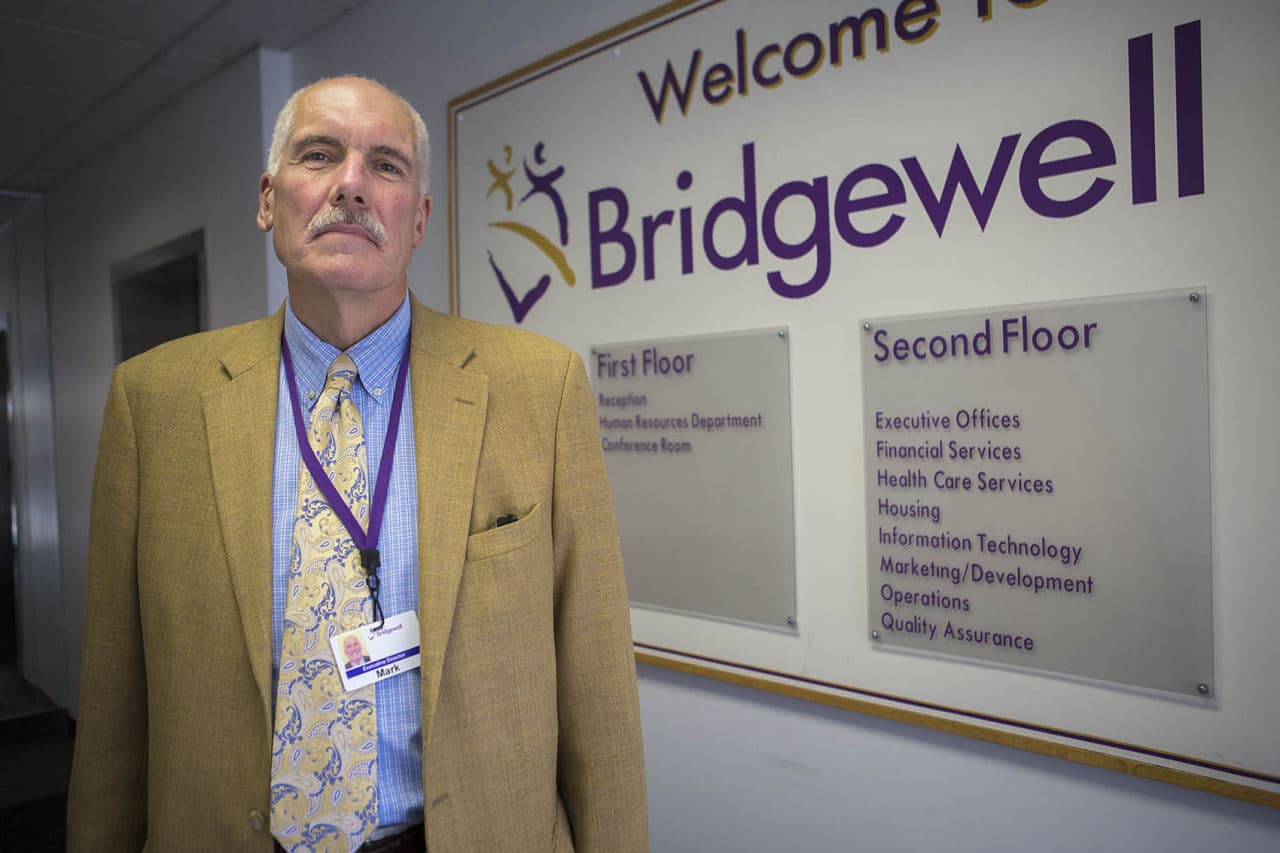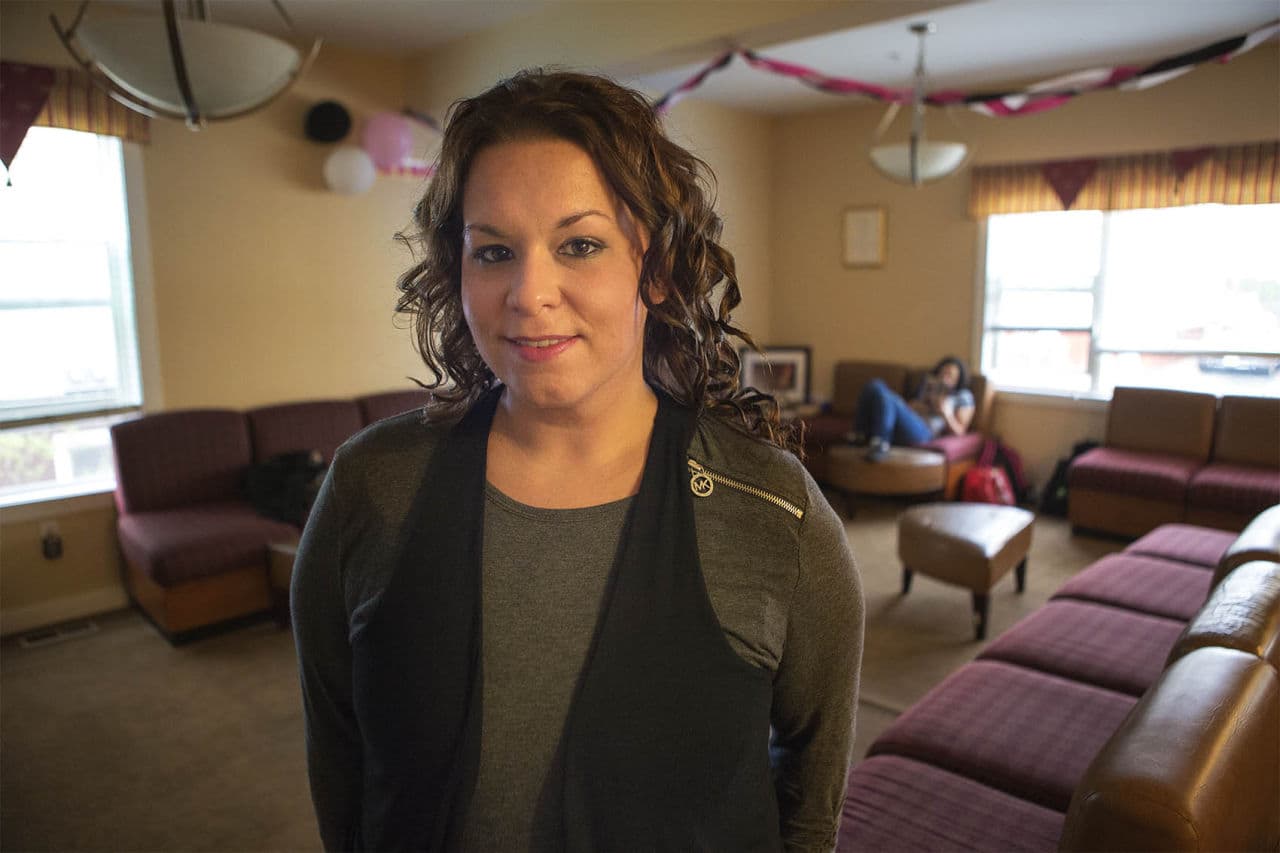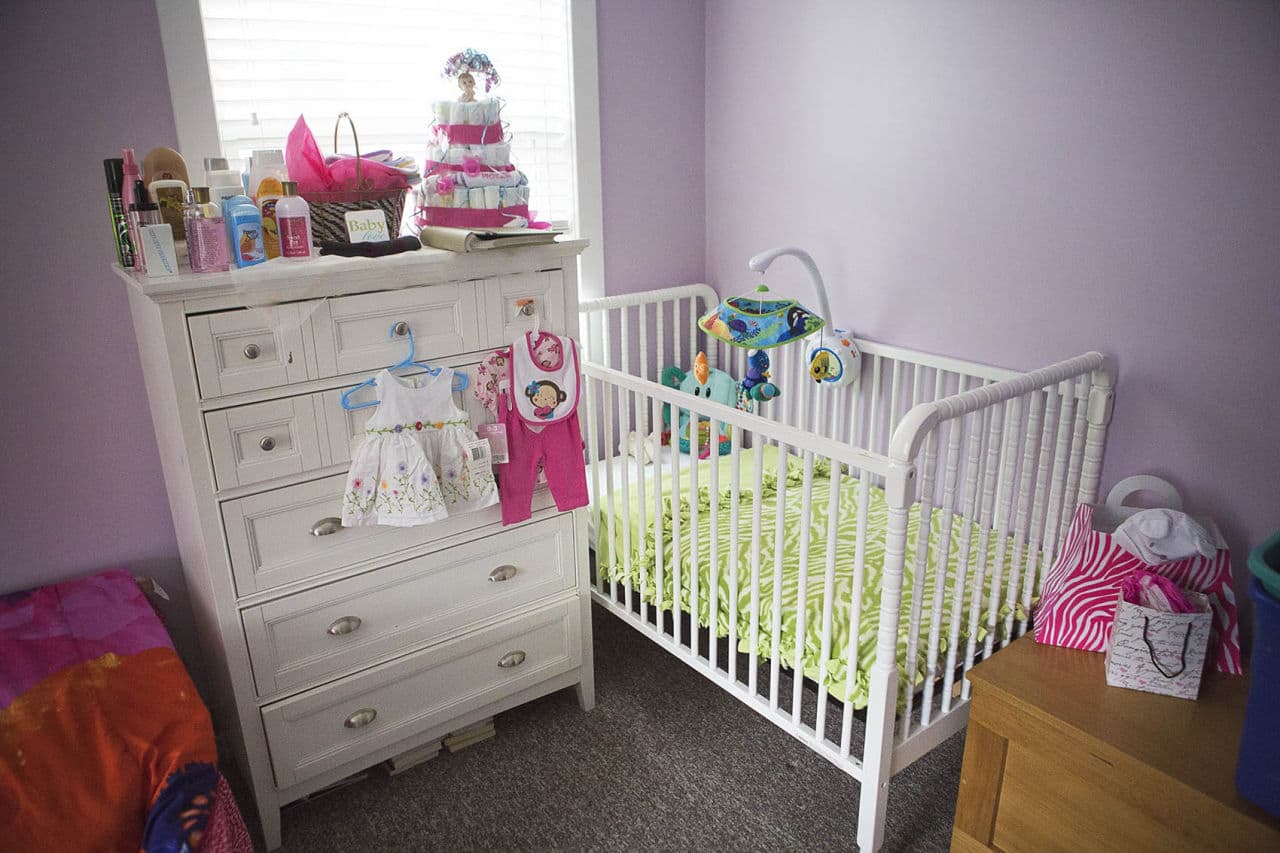Advertisement
'I Feel Like There Is A Light': Lynn Nonprofit Offers Substance Treatment For Women

Looking around her new apartment in Lynn, 25-year-old Christina -- who didn't want her last name used -- can't believe how far she's come in the past four years. During that time she's gone from jail to working full-time as a medical assistant and living with her three kids.
"Four years ago, are you kidding me?" she says, as tears stream down her face. "I couldn't do anything, and I know it sounds horrible. I'm sitting here crying about something that I had control over, and I chose to destroy it. "
Christina feels her drug use destroyed her family. She was a young mother, pregnant with her second child, when the dentist prescribed her opioid painkillers. "I had a tooth problem and they prescribed a low dose opiate like Vicodin," Christina says. "I went through them in like a day and a half. Toward the end I was buying from a drug dealer."
For a while she was able to hide her substance use, even from her husband. But it didn't take long before Christina got into legal trouble and then ended up at the treatment program Project COPE in Lynn.
During the residential phase of the program, her infant son was able to move in with her. When she moved to structured sober living, she was able to bring her two daughters. Now, she lives in an immaculate apartment with her three children, who are 7, 5 and 3 years old.
"My daughter started school and I didn't miss out on that," Christina says. "Just hearing how fantastic a student she is, how smart she is, I think to myself, 'You have no idea what she's been through' — all because of me."
Heroin Use Spikes Among Women

That guilt can be overwhelming, according to Project COPE Executive Director Mark Kennard. He says women's substance use needs to be treated differently from men's — especially for mothers — because they face additional stigma and complicated emotions about their drug use.
"The shame and guilt that women talk about in treatment is something that you don't hear about with men in treatment. It's intense," Kennard says. "Addiction is a disease that impairs judgement and they often have done terrible things that they will never forgive themselves for."
While heroin use has increased among most demographic groups over the past 10 years, it's been particularly dramatic among women. The Centers for Disease Control and Prevention reports a stark 100 percent increase in heroin use among women between the years of 2002-'04 and 2011-'13.
And Massachusetts health officials say more women than men who are currently in drug treatment report that opioids are either their primary or secondary drug of choice. Women represent 27 percent of the fatal overdoses in Massachusetts over the past two years.
Advertisement
Kennard says over the years, Project COPE has adapted its focus, from a strict so-called "break them down to build them up" approach, to a gentler, longer-term, therapeutic approach that focuses on helping women nurture themselves back to health.
"The model is relatively new and borne out of the fact that the relapse rates were so high and the stories were horrific," Kennard says. "We had women graduating and going into a shelter. [The Department of Children and Families] was saying, 'OK, you graduated, here are your kids.' "
Many of the women in Project COPE have been referred by the state Department of Children and Families or the courts. Close to 70 percent of the women list opioids as their drug of choice, and about half of them have been in residential treatment before.
'I Wanted Him To Have His Mother Back'

Where Project COPE tries to be different is in its length of programming. It starts with residential treatment that continues for at least six months and is divided into three phases. In the first phase, there are strict rules: No cellphones or visitors allowed, and no one can leave the program alone.
Thirty-year-old Lisa, who has been in Project COPE for six weeks, says the first week of counseling and meditating and writing was painful.
"I cried, and I don't normally cry," Lisa, who also doesn't want her last name used, says. "But that's pretty much all I did for my first week here. You feel all this stuff and you're like, I can't believe my life has got to this."
Lisa was addicted to prescription painkillers for years but switched to heroin because it was less expensive. A few months later she overdosed and was revived by the drug Narcan.
She constantly grapples with the guilt she feels about her 11-year-old son, who is now living with her father.
"I wasn't even getting him up for school," Lisa says. "He was 11 and he was getting his own breakfast and walking out disheveled 10 minutes before his bus came because I overslept. He was living the life of an addict."
But her son is what motivated Lisa to get into treatment.
"He has saved my life in more ways than he'll ever know," she says. "When I first got here, I didn't want this for myself, I wanted him to have his mother back. You can't get clean for anybody else, but he is my rock, my drive."
'The Strictest Place In America'
In the beginning of the program, the women are also required to work with a counselor and case manager and attend daily recovery and house meetings.
In one meeting about setting goals, the women talk about their upcoming appointments for the week and how to begin planning for their futures.
"My goals coming up are my school," 44-year-old Cheryl tells about 20 women. "I'm going to my school today. I have my classes for January."
School was something Cheryl never thought was possible. She has been with Project COPE for five months and says it's been decades since she's managed to stay out of prison that long.
"I feel like there is a light, like I have a life now," she says. "I never gave anything a chance before, so I always ended up back in prison.
"Since I've come to this house, this is the strictest place in America," she adds, as the women in the meeting laugh.
The camaraderie among the women is evident, and counselors say that's a big part of the treatment — helping women reestablish relationships with others, with themselves and especially -- for many of them -- with their children.

One 35-year-old, who didn't want her name used, gave birth to her daughter in May. She went into labor while in police custody for violating her probation. She is now working with a state social worker and plans to have her daughter move from foster care into the Project COPE home next month.
Project COPE is one of eight programs in Massachusetts that works with families with children. It's one of the few women's programs that provides support for some of its clients for years.
Norma Finkelstein, executive director of the Institute for Health and Recovery, says research shows that women often have better outcomes if they reunify with their children in treatment.
Although she says Massachusetts is a leader compared with other states in having 34 percent of its residential treatment beds just for women, it's still not enough.
"We don't have the capacity. We need more treatment programs, especially for families. And we need more community based treatment with adequate funding," Finkelstein says.
Project COPE hopes to expand, especially since it merged with the larger social service agency Bridgewell last year.
Its director, Kennard, says one idea he's been working on recently involves social enterprises -- small businesses that would help the women develop marketable skills and perhaps own their own businesses one day.
But for now, Kennard says he's taking it one day at a time.
This article was originally published on December 01, 2015.
This segment aired on December 1, 2015.
